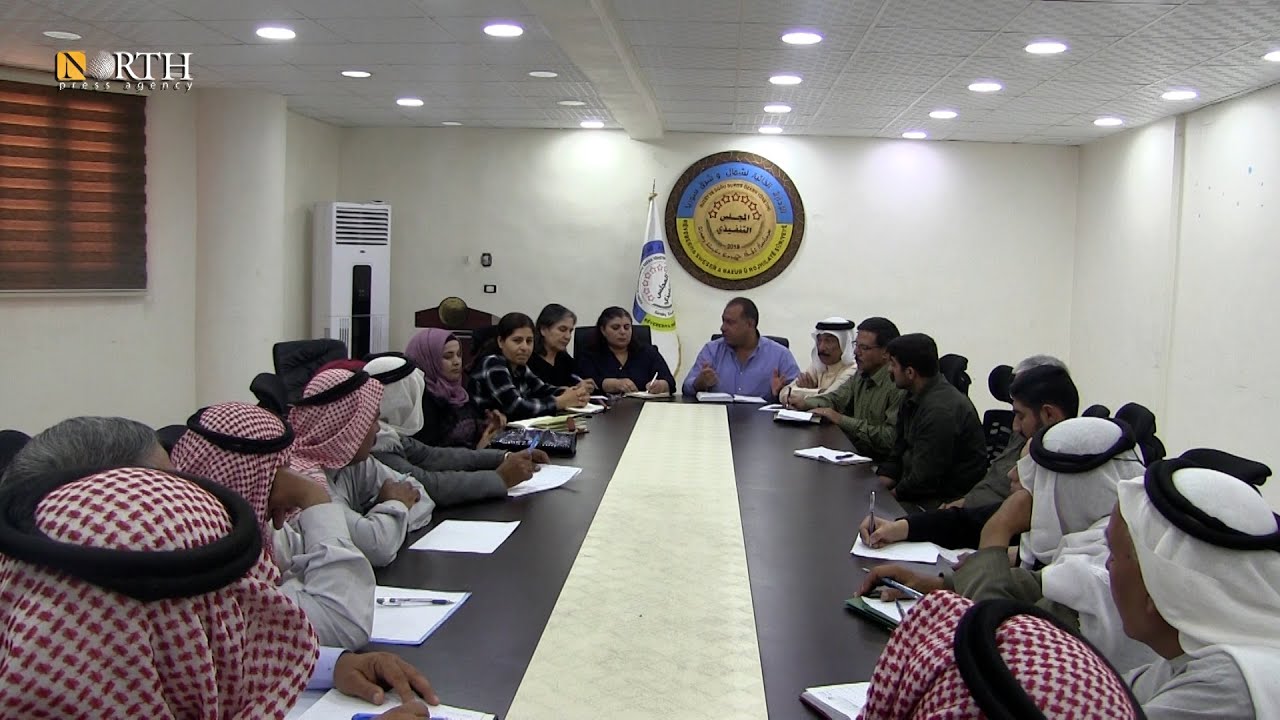HASAKAH, Syria (North Press) – Academics and specialists in the field of economics and business administration demanded to create conditions and to overcome obstacles to the return of those who wish to invest in northeastern Syria.
These demands come after Syrian Democratic Forces (SDF) Commander-in-Chief Mazloum Abdi, called on investors and capital to return to the homeland.
“The matter is a national responsibility, and it is everyone’s responsibility,” Abdi added in an interview with a local TV earlier this month.
This is not the first time that senior officials in the Syrian Democratic Forces and the Autonomous Administration of North and East Syria (AANES) have called on the expatriates to return.
Calls for creating conditions
Shawqi Muhammad, PhD in economics, said that the region is capable of absorbing thousands of small and medium enterprises, if the appropriate investment environment is provided.
Muhammad believes that the region’s absorption of these projects would be through creating a natural and suitable climate for work, in light of the presence of large areas of land, the availability of raw materials, and cheap labor, in addition to the availability of scientific and practical qualifications of young people.
Currently, Muhammad is preparing a study on the extent of the impact of these projects on improving the economic reality in the region and the obstacles to their way.
“The process needs a fertile investment environment and an integrated system of laws and legislations that regulate the work,” he added.
But he wondered whether the investment climate in the region is a catalyst for those projects at the present time or not.
According to the statistics of the Economic Board of the AANES, 538 small establishments and factories operate in Manbij, and 138 in Jazira .
Berivan Khalid, the co-chair of the Executive Board of the AANES, expressed her optimism about the return of the people of the region to their homeland.
She told North Press that its management is ready to provide the necessary facilities to investors and capital, and that they are working on a plan to encourage investors to return.
Salman Barudo, the co-chair of the Economic and Agricultural Board of the AANES, said that they can secure electricity for these projects, as well as secure land at subsidized prices, in addition to work licensing facilities and facilitate the import of materials from abroad.
Returnees’ experiences and criticism
Osama Turki, who recently returned from Germany to his hometown in Hasakah, believes that working abroad has risks and difficulties, whether in terms of bureaucracy or the huge taxes imposed by European governments.
Turki currently runs a steel center in the city of Hasakah. “Failure in projects abroad means bankruptcy,” he said.
“Although my current job is not excellent, but it is better than staying in Europe,” he added.
Turki is one of the few who preferred to return to staying in Europe, and summarizes the reasons for not returning many people in three points, “fear of the unstable security situation, the military services, and those who sold all their possessions and no longer have anything here.”
Omran Ali, a master’s degree in Business Administration – Risk and Crisis Department and a PhD in advanced communications engineering, summarizes the issue in two axes, the first of which is that “management must” restore the investor’s confidence in terms of security.
The second one is to completely eliminate terrorist groups, as well as get rid of crisis and war dealers, and fight corruption in all its forms.
Kasser Abdo returned from Germany about three years ago and currently owns a refrigerator to store food and vegetables in the town of Tuwena, north of Hasakah.
Abdo did not stay in Germany for more than a year because he did not adapt to the life there.
“Germany is its people, not ours,” he said.
But he complains about the bureaucracy of the AANES institutions, as he licensed his warehouse a year ago, and the administration granted him a one-year license.
“For a week, I have been working on renewing the contract, but I have not finished yet, due to the large number of papers and items required,” he added.
Abdulhamed al-Mahbash, co-chair of the Executive Council of the AANES, said that the AANES is working on changes within its administrative structure.
It is expected that the AANES will conduct general elections, and this comes in implementation of the outputs of the National Conference for the People of the Island and the Euphrates, which was held by the Syrian Democratic Council (SDC) at the end of last month.
Also, reassessing the work, performance and qualifications of the administration employees and training them, and working to develop, empower and expand the administration and provide it with technocrats.

